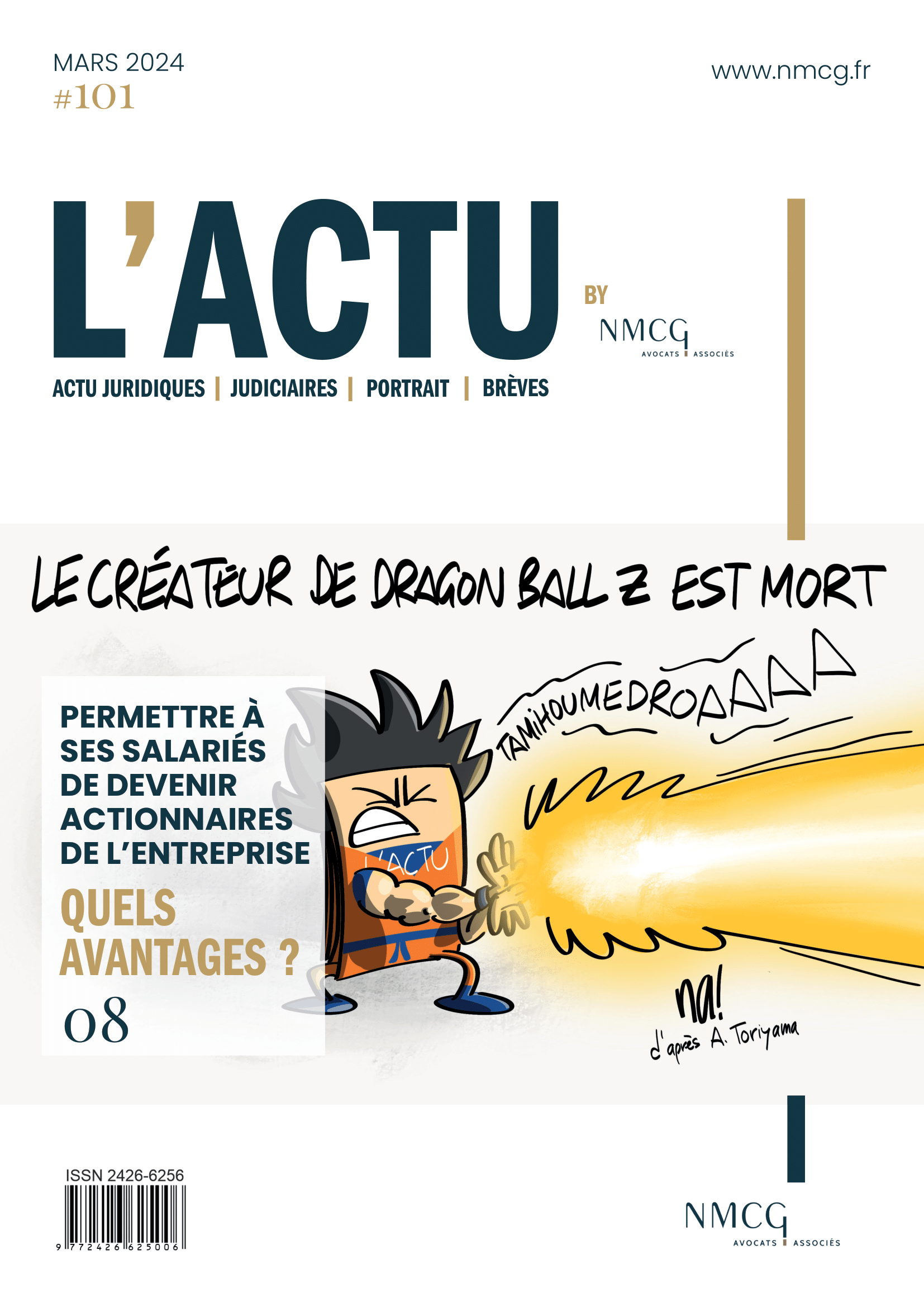Serious misconduct by the commercial agent company in the event of an intuitu personae clause concerning its director
1 October 2022
In two rulings dated 29 June 2022, the Commercial Chamber of the Court of Cassation (Cass. com. 29-6-2022 n°20-11.952 and n°20-13.228) clarified the notion of serious misconduct of the commercial agent allowing the termination of the contract without payment of the compensation indemnity.
Indeed, it is worth recalling Article L 134-12, paragraph 1, of the Commercial Code, which provides that: “In the event of termination of his relationship with the principal, the commercial agent is entitled to compensation for the loss suffered.
Thus, the unilateral termination of the contract by the principal entitles the statutory agent, notwithstanding any clause contrary to the agent’s interests, to compensation for the prejudice caused by the premature termination of the contract.
However, the commercial agent loses his right to compensation in three cases:
– If the termination of the contract is justified by serious misconduct of the agent (Article L 134-13, 1° of the Commercial Code),
– If the agent has not notified his claim to the principal within a period of one year from the date of termination (Article L 134-12, paragraph 2 of the Commercial Code), it being specified that any clause or agreement shortening this period or imposing other conditions to the detriment of the agent is deemed unwritten,
– If the termination of the contract is due to the will of the commercial agent (in the latter case the commercial agent may obtain compensation only if his decision is justified by circumstances attributable to the principal or due to his age, infirmity or illness)
The Courts have therefore repeatedly had to assess the serious nature of the faults invoked against the commercial agent, allowing his co-contractor not to owe compensatory indemnity.
Indeed, the qualification of serious misconduct is a matter for the judge alone and not for the agreement of the parties, Articles L 134-12 and L 134-13 of the Commercial Code being of public order (Cass. com. 28-5-2002 n°00-16.857).
Commercial agent contracts, due to the very nature of the relationships they generate, also recurrently contain an intuitu personae clause, i.e. in consideration of the agent’s person.
Thus, in the two above-mentioned rulings, the Court clarified that when a commercial agent contract requires the principal’s approval in the event of a change in the management or control of the agent company, failure to comply with this obligation constitutes a breach of the obligation of loyalty, constituting a serious fault.
In both cases, the commercial agent was a company and the agency contract included a clause specifying that it was concluded in consideration of the natural person managing the company and that any change leading to the loss by the latter either of the effective and permanent management of the company or of the majority control of the latter had to be submitted to the principal for approval before the change occurred; failure to comply with this obligation, the clause added, was assimilated to serious misconduct on the part of the agent, giving rise to the right to terminate the agency contract, with no right to compensation.
As the company changed its control and management in the first case (No. 20-13.228) and only its management in the second case (No. 20-11.952) without informing them, the principals terminated the contract and refused to pay compensation.
The Court of Cassation ruled in favour of the principals on the basis of Articles L 134-12 and L 134-13 of the Commercial Code.
In the first judgment (No. 20-13.228), the Paris Court of Appeal had wrongly ruled out any serious misconduct on the part of the company, considering that it had not been shown that this change in the management and control of the agent company had undermined the common purpose of the mandate and that the new majority shareholder of the company had carried out an activity that competed with that of the principal. On the contrary, the High Court ruled that the company, which had failed in its obligation to submit to the prior approval of its principal the change leading to the loss of majority control of the natural person, had committed a breach of the obligation of loyalty, essential to the mandate of common interest, constituting a serious fault.
In its second judgment (no. 20- 11.952), the Supreme Court again held that the company had failed in its duty to provide information and transparency to the principal by not informing it of the resignation of its manager, adding that the alleged de facto management exercised by the former manager did not exonerate the company from its contractual obligation to submit the change of manager to the principal for approval.
These rulings are in line with the case law of the Court of Cassation, which defines serious misconduct on the part of the commercial agent as undermining the common purpose of the mandate of common interest and making it impossible to maintain the contractual relationship (Cass. com. 9-7-2013, n°11-23.528).
Such a fault is constituted by the agent’s failure to fulfil his obligation of loyalty and information towards the principal as this is an essential obligation of the mandate of common interest (Cass. com. 24-11-2015 n°14-17.747).
These two decisions reinforce the importance of including an intuitu personae clause in commercial agent contracts.
Indeed, it has been ruled that given the autonomy of the legal entity, a change of control or manager cannot justify the unilateral termination of the contract by the principal (Cass. com. 29-1-2013 n°11-23.676), unless the clause authorises it (Cass. com. 3-3-2004 n°02-12.905), which is why it is important for the clause to be properly drafted.
All the lawyers at NMCG Avocats et Associés are at your disposal to ensure that your contracts are drafted with the legal security you expect.































































